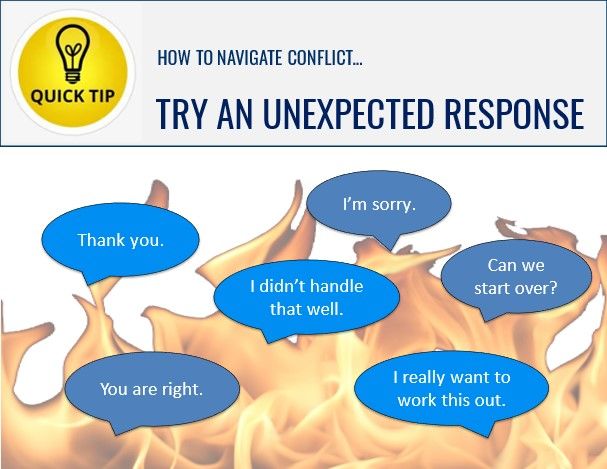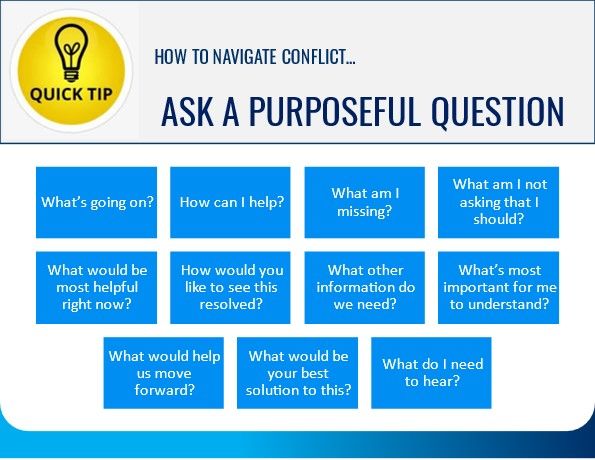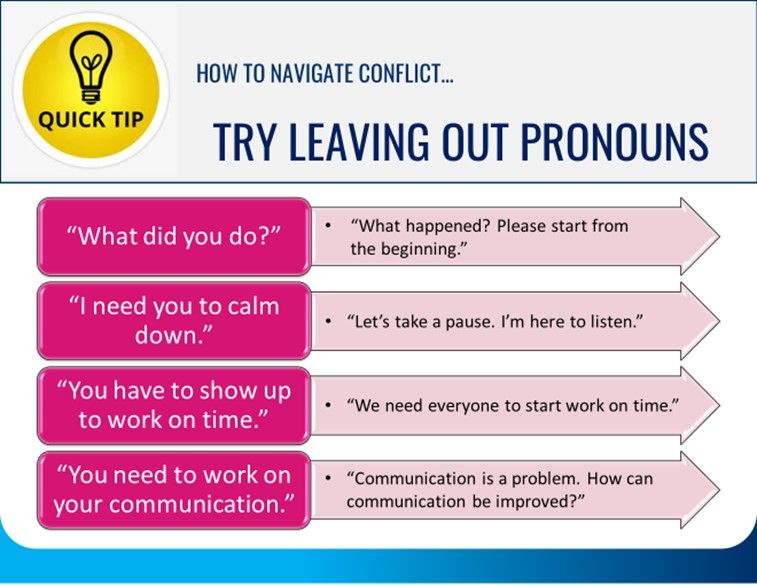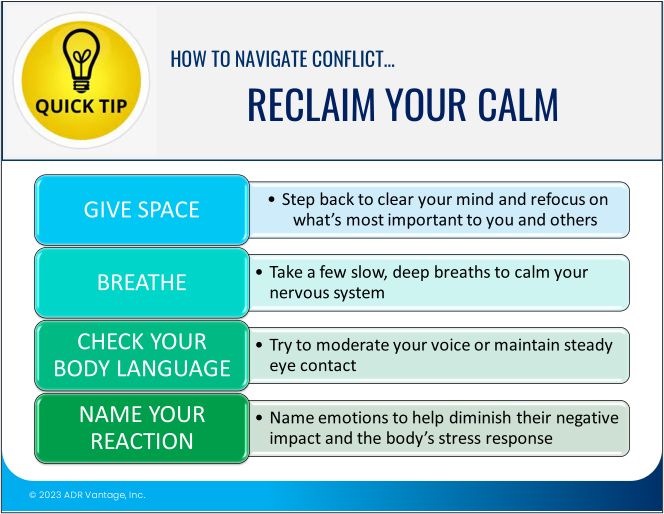No matter how easy going your relationships may be, personal or professional conflicts are inevitable. The ways in which you react during any given conflict, through your words, emotional responses, and your demeanor can make a difference between strengthening that relationship or derailing it.
Quick Tip #1: Try an Unexpected Response!
You can sometimes set a new course for a conversation by offering a statement that is unexpected by the other person and makes them stop for a moment. It is almost like a pause in a conversation that starts out negatively to reset it in a more positive direction. It takes the other person by surprise and can help to shift an otherwise combative dynamic. Responses like – “Thank you for that feedback,” “I’m sorry I did that,” “I’m sorry you felt that way,” “You are right,” or “Can we start over?”— can slow an argument down and help bring calm to the situation.

Quick Tip #2: Ask a Purposeful Question!
A natural tendency during a heated conversation is to jump right in and offer solutions to resolve the situation, before we really know or understand the problem. Sometimes our discomfort with conflict in general, or our concern that the relationship will be irreparably hurt, makes us want to fix things and move on quickly. However, if we remember to BE CURIOUS first and ask thoughtful questions, we learn information from others that helps us uncover the underlying problem, or what’s really going on. If someone feels heard and understood, they are more likely to work with you to resolve the problem in a way that helps the relationship grow and addresses the issues in the best way possible.
Questions like “What are you thinking or feeling?” “What would be most helpful right now?” or “What am I missing?” show that you are interested in what the other person has to say, and that you want to know what is most important to them. By staying curious, asking questions, and being as responsive as possible, you will more effectively manage any conflict.

Quick Tip #3: Try Leaving Out Pronouns!
It is not uncommon for the questions or statements we utter during a tense conversation to sound accusatory, trigger the other person’s emotions, and escalate, rather than deescalate the situation. To reduce the negative implications of what you say, try simply removing the pronouns. For example, instead of asking, “What did you do?” ask “What happened?” Or change the statement, “I need you to calm down” to “Let’s take a pause.” Without the pronouns, comments are perceived by others as less directive and blame-based; they invite a more productive conversation and are less likely to “heat up” a conflict.

Quick Tip #4: Reclaim Your Calm!
Whether you are involved in a conflict, feel stressed or overwhelmed, are amid a crisis, or find yourself in a disagreement with someone, you can reclaim your calm by engaging in a few simple practices.
First, be sure to give yourself and others a little bit of needed physical and mental “space” by stepping back to clear your mind, refocus on what’s most important to you and those involved, and breathe. Breathing helps you manage your own body’s response to stress, and the oxygen puts back in balance the chemicals flowing through your body that have been generated by your anxiety. Take a few slow, deep breaths to calm your nervous system and get grounded.
Also, check your body language. Even if you are not feeling calm, try to moderate your voice, maintain steady eye contact, and be aware of what your body language might be communicating to others.
Finally, without judgement, acknowledge feelings of anger, frustration, anxiety, fear, or disrespect that you may be experiencing or that you think are being experienced by others. By naming the reaction, and simply recognizing the emotions that are at play in you and in others, you can diminish the negative impact of those emotions, and counteract the body’s natural stress response.

